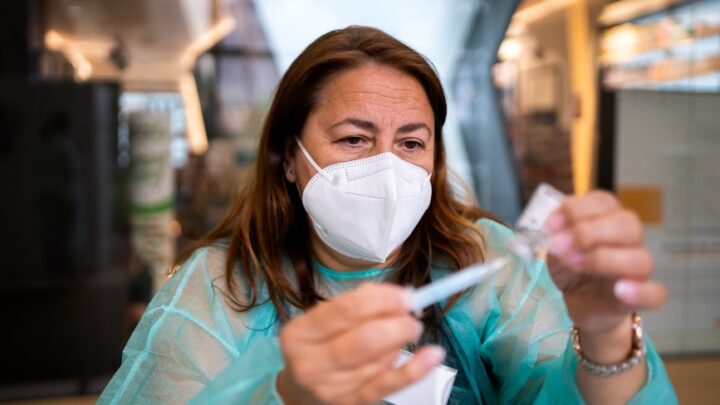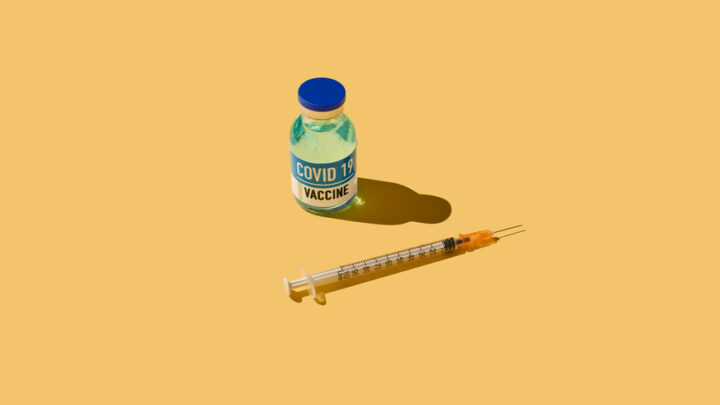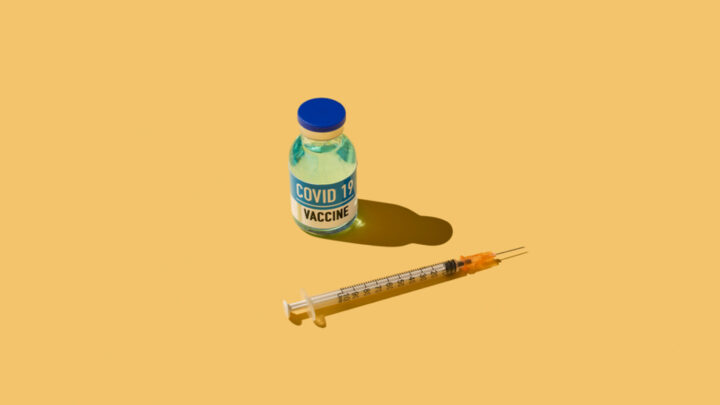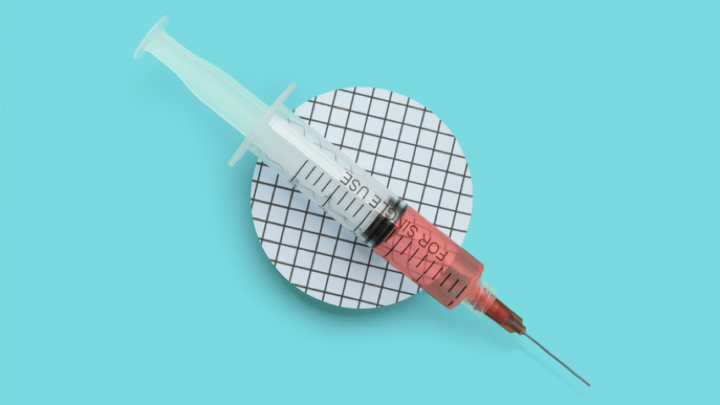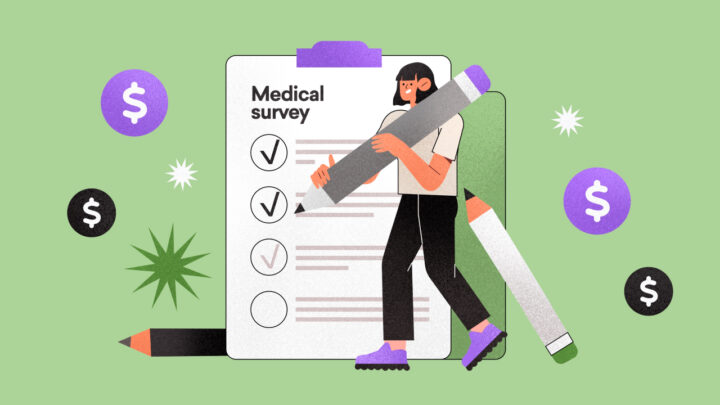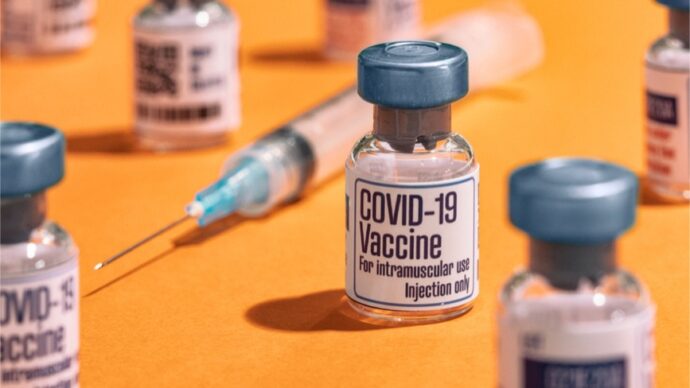
Some COVID-19 vaccine companies may apply for a change to their emergency use authorizations from a two-dose to a three-dose label. Drugmaker Pfizer said last Thursday it is seeing waning immunity from its coronavirus vaccine and cited real-world data released from the Israel Ministry of Health, which showed vaccine efficacy in preventing infection and symptomatic disease has declined six months post-vaccination. Pfizer said it will soon publish data about a third dose of vaccine to develop a booster shot and submit it to the US Food and Drug Administration, European Medicines Agency, and other regulators. According to the New York Times, “U.S. officials press pfizer for more evidence of need for booster shot…[And] World Health Organization officials emphasized on Monday the importance of prioritizing global vaccine production and distribution over the development of boosters in light of the stark gaps among countries’ vaccination programs.”
According to STAT, Moderna is also testing a Delta-variant-specific booster, contrary to a previous study that found Pfizer and Moderna’s vaccines are likely to induce “persistent” immunity.
Public health officials including President Biden’s Covid Advisor, the director of the National Institute of Allergy and Infectious Diseases, Anthony Fauci told STAT “people are jumping the gun” and Americans don’t need boosters yet.
However, Sermo physicians aren’t so sure. In a recent poll of 860+ global Sermo physicians, 46% believe that from their own real-world experience, a third booster shot is needed to maintain vaccination efficacy; while 44% say it’s too early to tell; and only 8% said they don’t believe the booster is needed.
When asked if health care workers and older adults in countries without access to vaccines should be a higher priority for receiving a 3rd booster shot than those already vaccinated—63% said yes, vaccinating those without access and higher risk should be a priority over developing a third booster shot; 21% said yes, developing a booster shot should be a priority for people in healthcare who are at greatest exposure and risk; and 16% said no, developing immunity should be the priority, regardless of whether it’s initial or booster vaccination.
Regarding persistent levels of vaccine hesitancy, 41% said this announcement was premature and could undermine the perceived value of vaccinations, and the current effort to raise vaccination rates. Thirty percent said this data should be shared immediately, but in partnership with leading public health organizations such as the CDC, FDA, NIH, EMA and WHO. And 29% said this information does not undermine the value of vaccines and the real-world data should be shared as it becomes available.
When asked if it’s too self-serving when companies make public policy recommendations, here’s how doctors responded:
- 43% said yes, companies should not be making public health recommendations on their own.
- 39% said no, companies should share real-world data with health organizations for a joint announcement.
- 17% said no, it’s not self-serving: companies should share real-world data as soon as it becomes available.
Given rising infection rates of the Delta variant, and knowing that people began receiving Pfizer vaccines more than 6 months ago and boosters are not yet available—58% said this announcement might spur the adoption of new restrictions across the globe; 33% said this announcement will not affect current COVID restrictions; and 9% said this announcement will only affect those who received the Pfizer vaccine.
Here is more of what Sermo physicians have to say on this topic—in their own words:
I believe that the need or not of the third dose will become clear with the passage of time and the implementation of scientific studies.
For now the important thing is to place the two doses to each person in the world.
– General Surgery, Venezuela
waning antibodies does not equate to more disease. T cell immunity may be persistent. We allowed vaccine companies to dictate policy far too long. We give tetanus boosters every ten years because of waning antibodies. But when was the last tetanus case in anyone that ever had a vaccine? We need to treat diseases and people, not antibody titers.
– Family Medicine, U.S.
We need to work to the betterment of man kind. If we want to resume some sort of normalcy these companies need to be transparent and work with heath orginizations to sort through the data and help to make these findings avaialable to all people and countries. We have a responsibility to each other to help one another and not serve our own self interests.
– Ophthalmology, U.S.
Since we need a ‘flu shot every year owing to the virus’ changing composition, it isn’t too much of a stretch to think the same will pertain to Covid vaccines.
– Obstetrics & Gynecology, Australia
Besides regulatory supervision, an ethical one is an emergency. Pfizer and Boentech were incredibly effective putting a good vaccine out there but we should rememeber there is a clear conflict of interest (profit, increasing market share regarding other companies, public perception and nudging). The pandemic is here to stay for a while and we should not always run. We should start to put everything in perspective and ethics (largely forgotten until now) shouls have a role looking at all arguments into play
– Oncology, Portugal
I think we have no idea how long immunity lasts, either from vaccination or natural infection, and that discussion of boosters is premature – especially for a vaccine that is still EUA status.
– Dermatology, U.S.
I think we will need one, and the time to work on it is now. If the early suggestion that one will be necessary proves wrong, then Pfizer takes the hit. If Pfizer is right and we diddle around, then hundreds (thousands?) will die. Just because a booster is developed does not mean it has to be used. But, like life insurance, you want it in place if it is needed. And, too, remember “early suggestions” were that masking was not necessary. It did not take long to show that was incorrect.
– Dermatology, U.S.
Because of the politicized nature of the issue, we have serious problems with how to frame the message that people receive. The science isn’t particularly surprising, they are getting preliminary data that the immune response to the Pfizer vaccine may be waning at 6 mo. and this needs verification. In addition , new variants are appearing to be clinically more virulent though indirect evidence is consistant with vaccines still being efficacious ( 99% of current fatalities are among the unvaccinated and the vast majority of hospitalizations is among the unvaccinated population). Again, not surprising. In a rational world, this would stimulate informed discussions about when to boost and what mofications for new varients would be wise. That’s still being discussed but it’s also clear that public officials and “talking heads” are very concerned about how real time information will affect the less rational debate in many sections of society that is already making it difficult to get people to accept vaccination. Welcome to the real world.
– Ophthalmology, U.S.
As new variants of the disease appear, it will be necessary to adjust the vaccine or add new doses.
– General Practice, Venezuela
No booster needed at this time; let’s get everyone who wants it to be able to get a vaccine.
– Internal Medicine, U.S.
